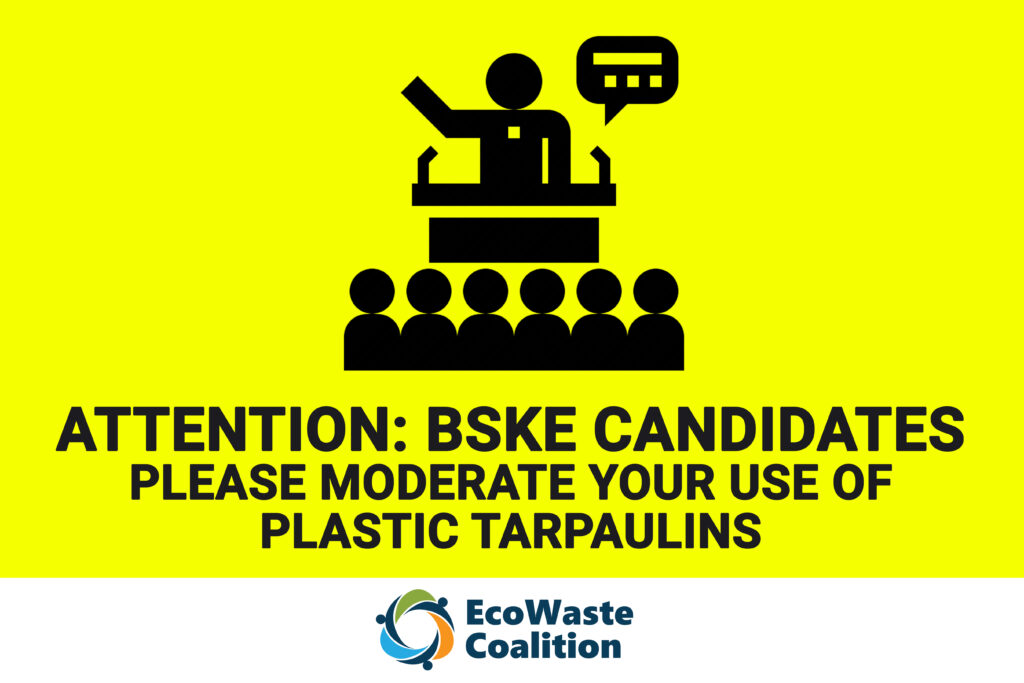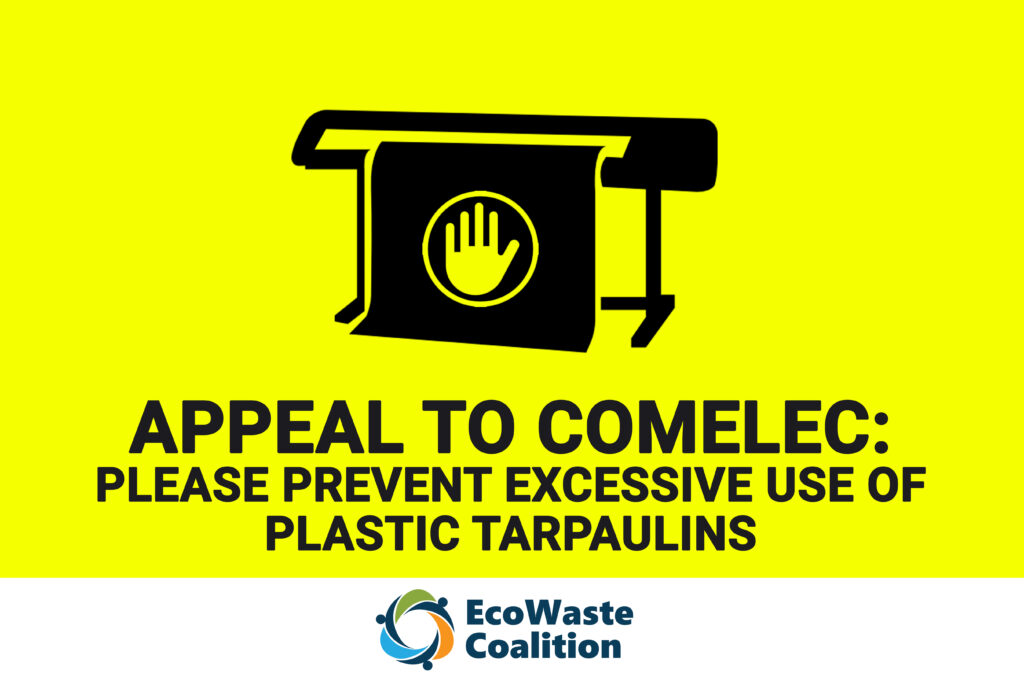As candidates for the upcoming Barangay and Sangguniang Kabataan Elections (BSKE) have already filed their Certificates of Candidacy, the toxics watchdog group EcoWaste Coalition expressed its support to a legislative measure, which, if approved, will prohibit the “non-usage of plastic posters” in election campaigns.
Senate Bill No. 1762 authored by Senator Raffy Tulfo seeks to amend Republic Act No. 9006, or the Fair Election Act, by proposing the “non-usage of plastic posters” during the election campaign “in an effort to protect the public health and help preserve a cleaner earth.”
As Tulfo’s proposed amendment has yet to be enacted into a law, the EcoWaste Coalition appealed to all BSKE candidates to voluntarily moderate their use of tarpaulins to woo the voters, noting that most tarpaulins are made of polyvinyl chloride (PVC) plastic, which is produced using carcinogenic substances like vinyl chloride and cadmium.
The group further requested the Commission on Elections (COMELEC) to use its powers to monitor, control and prevent excessive and inappropriately placed tarpaulins, including candidates’ promotional back-to-school, fiesta and related “greetings,” before, during and even after the official campaign period.
In recommending a prohibition on plastic posters, Tulfo noted the excessive use of tarpaulins during the campaign season, which “mostly end up in landfills and sometimes in bodies of water, causing pollution and flood,” adding “they do not degrade quickly and may take 1,000 years to decompose.”
Tulfo likewise cited the results of the laboratory tests commissioned by the EcoWaste Coalition that detected cadmium, a carcinogen and renal toxin, on the campaign tarpaulins of some presidential aspirants in the elections held in 2022.
Laboratory tests commissioned by the group found 607 to 775 parts per million (ppm) of cadmium on the multicolored coatings and 384 to 546 ppm on the white sheet of six presidential campaign tarpaulins that were analyzed.
Under the European Union’s Cadmium Directive, the total amount of cadmium on plastic, paint and polymer stabilizer should not exceed 100 ppm whatever their use or intended final purpose.
Aside from cadmium, PVC plastic may contain lead pigment and stabilizer, as well as phthalates to make such plastic soft and flexible. These additives can migrate from PVC products to consumers and may also be released to the environment when such products are dumped or burned, the group said.
The EcoWaste Coalition also pointed out that incinerating chlorinated plastics like PVC generates highly toxic by-product dioxins and furans, which are known persistent organic pollutants (POPs) targeted for continuing minimization and, where feasible, ultimate elimination under the Stockholm Convention. (PR)
Photos courtesy of EcoWaste Coalition



